Abuse. It’s one of those topics that can stop a conversation dead in its tracks. Yet those who work in the area of abuse response and prevention say that talking about it—before it happens—is precisely what the church needs to do.
When there are no known cases of abuse demanding a church’s attention, it may be tempting to feel complacent or to rest in the belief that the church is a safe place.

Peters
Heather Peters is coordinator of restorative-justice programs for Mennonite Central Committee (MCC) Saskatchewan and a member of Mennonite Church Saskatchewan’s Safe Church Too working group. She cautions against complacency. “In reality, we know that abuse is so prevalent in our society,” she says. “It would be naive to think it’s not happening in our churches.”

Friesen
Jaymie Friesen, who works in the area of abuse response and prevention with MCC Manitoba, agrees with Peters. “Sometimes churches forget,” she says. “Just because we haven’t had a clergy-sexual-abuse issue [that doesn’t mean] that [abuse] isn’t an issue here.” She adds, “We know the statistics: one in four women and one in six men have experienced abuse. If people think it isn’t a problem, it’s because they’re not talking about it.”
Talking about abuse—how to prevent it and how to respond to it when it happens—is never easy, but its difficulty will be compounded if the conversation happens for the first time during a crisis. Peters urges churches to have difficult conversations before an abuse case is disclosed.
“We need to be having these conversations now before we have a crisis,” she says, pointing out that responses aren’t always the most helpful or thoughtful when people are in survival mode. “We need to be putting in policies and practices that lay out how we’re going to react—to have a culture where we know we can have these hard conversations, and to have a plan in place for if and when a crisis happens,” she says.
A good place to begin
Some congregations have given thought to this in the form of safe-church policies.
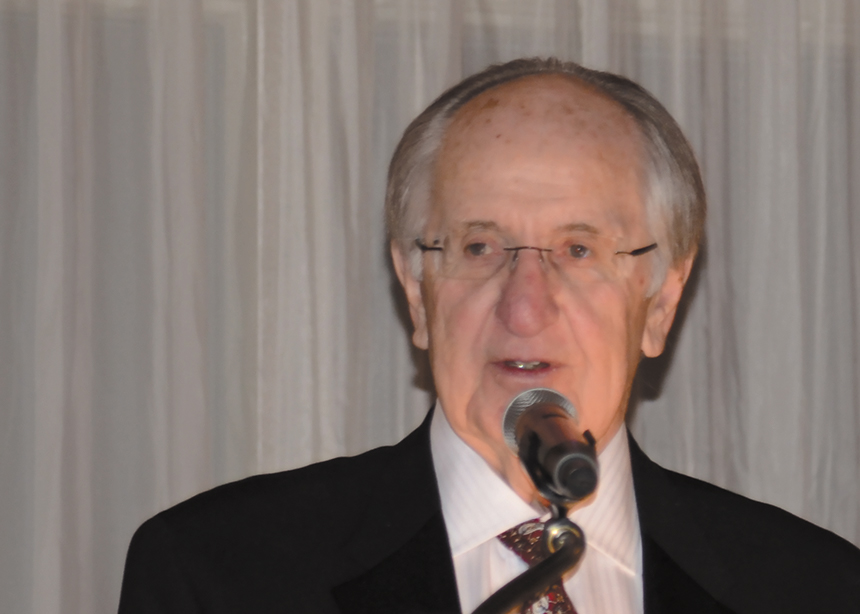
Rudy-Froese
Marilyn Rudy-Froese, who is church leadership minister for MC Eastern Canada, says a safe-church policy is a good place to begin, but that churches must then live into it.
“Making sure people know what it is [and] actively keeping that awareness of keeping the requirement” are ways of living into the policy, says Rudy-Froese, as are knowing “who are most vulnerable among us” and “working at healthy relationships.”
Friesen agrees that it’s important to have good policies in place. Safe-church and sexual-harassment policies are good places to start, but, “policies are only good insofar as they are talked about and applied,” she says. “[They have] to be part of a bigger cultural shift.”
The cultural shift Friesen speaks of is what MC Saskatchewan’s Safe Church Too working group is hoping to foster.
Heather Peters speaks of growing or creating a culture that lifts up the voices of those who have been harmed. “Often church leaders don’t feel well equipped or resourced if people come to them with situations of abuse,” she says. “As a group we wanted to provide resources for church leaders—not to have all the answers, but to know where to find support and answers.”

Guenther
Loewen
Susanne Guenther Loewen is co-pastor of Nutana Park Mennonite in Saskatoon and serves with Peters on the Safe Church Too working group. She sees theology as an important piece of this cultural shift. The way in which certain ideas are taught or preached can influence people’s attitudes toward them.
“Abuse has not been considered a peace issue,” she says, “which prompts the question of whose experience is informing our peace theology. Who gets to decide what’s an important peace issue?”
Guenther Loewen cites Carol Penner, who does research in the areas of Mennonite peace theology and abuse issues, saying, “‘We celebrate conscientious objection to war, but what about conscientious objection to family violence?’”
Discipline and forgiveness
Guenther Loewen also wonders about forgiveness. “Are we preaching cheap forgiveness that doesn’t require us to do the hard work of lamenting and healing harms?” she asks. “Is it the type of forgiveness that’s more about silence and protecting reputations, or is it about accompanying those who have been harmed?”

Driedger
David Driedger is associate minister of First Mennonite Church in Winnipeg. Together with Friesen, he has written the “Guide for Responding to Congregational Sexual Harassment and Abuse,” which will soon be available through MCC. Driedger agrees that the church’s theology—what is taught in Sunday school and what is preached from the pulpit—can help shape the culture.
One area in particular that came up for Driedger and Friesen, as they worked to develop their policy, was church discipline.
“Most people have a negative association with church discipline,” he says, “but there need to be boundaries.” When Driedger speaks of church discipline, he isn’t talking about punishment, but rather about establishing clear boundaries and holding people accountable when they cross those boundaries.
The importance of boundaries

Brubacher
As faith formation minister at Waterloo North Mennonite Church, Carmen Brubacher knows the importance of boundaries. “We cross boundaries all the time,” she says. “It’s about being aware that I am crossing boundaries and [making sure it’s] okay with whoever I’m with.”
To teach children about boundaries, Brubacher’s congregation uses the Circle of Grace curriculum offered by Dove’s Nest. The curriculum, which Waterloo North uses for three weeks each year, teaches children to distinguish between safe and unsafe secrets, to identify trusted adults in their lives, and to know how to respond to situations they’re not comfortable with.
“I hope Circle of Grace has made that space easier to step into,” she says, but she admits, “The growing edge is bringing it to the wider church.” Before the pandemic began, the congregation tried to have an annual focus on healthy relationships while the children were using Circle of Grace.
Toxic masculinity and patriarchy

Goerzen

Fawcett
Elsie Goerzen and Lydia Fawcett work in abuse response and prevention with MCC B.C. They offer support groups for both women and men who have been involved in abusive intimate-partner relationships. They believe that the needed cultural shift can’t happen unless the church dismantles patriarchy.
“Lydia says we swim in the waters of patriarchy,” says Goerzen of her colleague. “We need to have a higher view of women in the church, with full inclusion in all levels of leadership.”
And Fawcett asks, “What are churches doing about toxic masculinity? Our society is not helping men have healthy masculinity.”
Friesen sees education around healthy masculinity as an important opportunity. “The church has not done a great job of that,” she says, noting that “toxic masculinity has its own version in our Mennonite spaces. We need to be looking at ways men, too, have been harmed by patriarchy.”
Friesen, who offers workshops on abuse prevention to faith communities and organizations, says she has noticed that “churches with female leadership tend to prioritize these types of programs.” She adds, “Gender equity is really important in terms of insights that are brought [to the discussion].”
Starting the hard conversations
Whether the conversation has to do with patriarchy or gender equity, healthy masculinity or establishing boundaries, it boils down to how people relate to one another.
“How we talk to and treat each other matters and communicates the love of God,” says Rudy-Froese. “Sometimes in church we have to be willing to have hard conversations—to talk about what healthy relationships look like—not just about how we sexually relate, but how we speak to each other, and how we treat those on the margins.”
Having conversations like these can make people feel awkward and uncomfortable. But the awkwardness and the discomfort are worth the effort if the conversations equip the church to respond in helpful, healing ways when situations of abuse arise. And they are doubly worth the effort if they create a culture that prevents abuse from happening in the first place.
Intentional, albeit difficult, conversation, coupled with relevant and well-thought-out policies, are what’s needed to make the church a safe place for everyone, say these individuals.
“We can’t guarantee that there won’t be harm, but the more robust our policies are and the more attention we pay to [them], the less likely there will be harm,” concludes Rudy-Froese.
Resources
- Mennonite Central Committee’s Abuse Response and Prevention website (abuseresponseandprevention.ca).
- Mennonite Central Committee’s “Abuse: Response and Prevention” guide for church leaders (bit.ly/2SSD9M6).
- Dove’s Nest’s Circle of Grace curriculum (bit.ly/3z2BuUw).
- Godly Response to Abuse in the Christian Environment website (www.netgrace.org).
- Theatre of the Beat’s Unmute play website (theatreofthebeat.ca/unmute).
- Lori Anne Thompson, a Canadian woman who was abused by the late evangelist Ravi Zacharias, discusses the nature of abuse, predation and victimization in a March 8, 2021, interview with Glen Scrivener (bit.ly/2TAFCeh).
—Compiled by Donna Schulz
For discussion
1. Can you think of examples of abuse that have happened in your community, family, congregation or wider church body? Why do you think abuse is so difficult to talk about? What are the biggest challenges in dealing with this issue?
2. Does your congregation have a safe-church policy? What are the advantages of such a policy when a crisis erupts? Does your church carefully follow the mandates in its safety policy? Has our society experienced a “cultural shift,” so that we now understand the importance of safety policies?
3. Susanne Guenther Loewen says, “Abuse has not been considered a peace issue.” Do you agree? How has the church historically dealt with family violence? Do you know of examples where someone was pushed to forgive someone else, without appropriate recognition of the harm done?
4. Jaymie Friesen uses the term “toxic masculinity.” What do you understand this to mean? How well has the Mennonite church adopted gender equality?
5. Marilyn Rudy-Froese says it’s important to talk about what healthy relationships look like in order to reduce abusive situations. What are some ways we can have these conversations n our families and in our churches?
—By Barb Draper


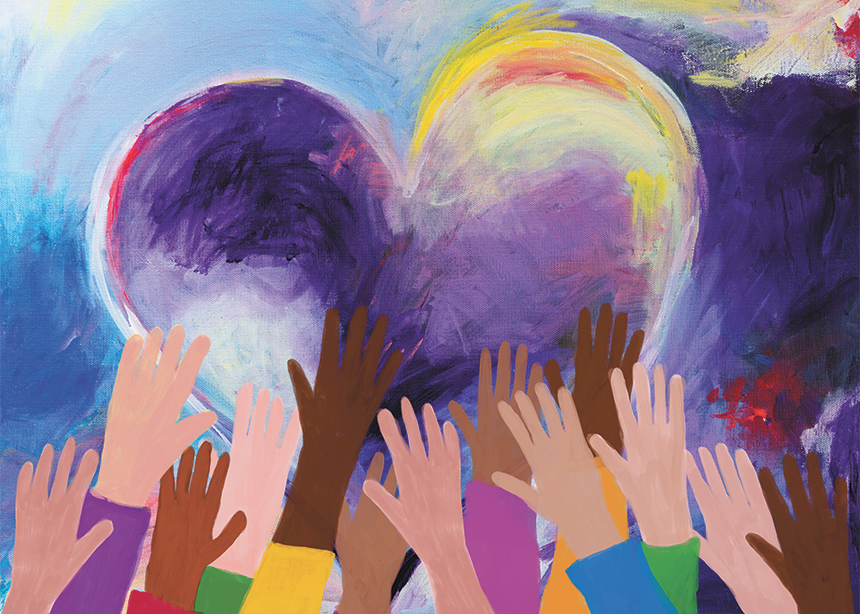
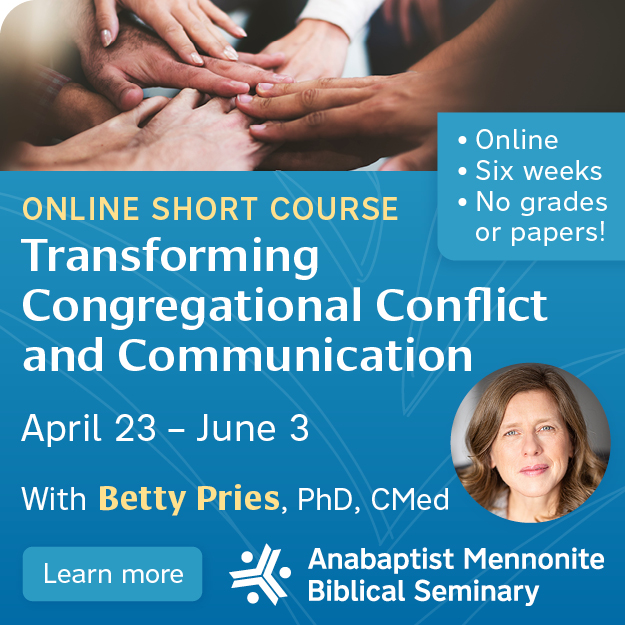
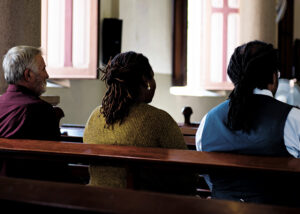
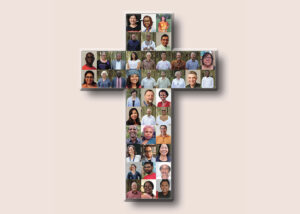


Leave a Reply
You must be logged in to post a comment.